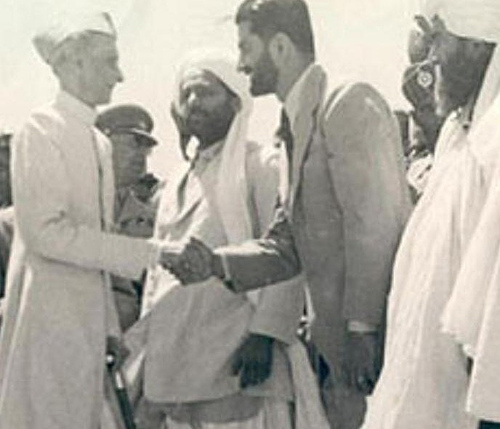Adil Najam
 Government sources in Pakistan have just announced that Nawab Akbar Bugti, chief of the Bugti tribe, veteran politician, and senior Baluchistan leader, has been killed in a shootout between “tribal militants and government forces” in Balochistan.
Government sources in Pakistan have just announced that Nawab Akbar Bugti, chief of the Bugti tribe, veteran politician, and senior Baluchistan leader, has been killed in a shootout between “tribal militants and government forces” in Balochistan.
This is very sad and disturbing news that cannot bode well for anyone. While details are still coming in, BBC reports:
The battle near his mountain hideout in south-west Pakistan also caused heavy casualties on both sides, reports say. More than 20 soldiers and at least 30 rebels died, officials say. The octogenarian has been at the head of a tribal campaign to win political autonomy and a greater share of revenue from Balochistan’s gas reserves. “It is confirmed, Nawab Bugti has been killed in an operation,” Information Minister Mohammad Ali Durrani told Reuters news agency. The battle reportedly took place near the town of Dera Bugti, not far from Mr Bugti’s hideout.
According to a newsflash posted on The News website:
Jamhori Watan Party (JWP) chief Nawab Akbar Khan Bugti was killed in a historical operation carried out by security forces in Kohlu and Murree tribal areas on Saturday night, Federal Information Minister Muhammad Ali Durrani confirmed… Pakistan People’s Party Parliamentarians (PPP-P) leader Makhdoom Amin Faheem termed Akbar Bugti’s death an incident which could worsen security situation in Pakistan.
The death, and the manner of death, of the veteran Baluch leader will indeed worsen the security situation in Baluchistan and exacerbate the feeling of marginalization amongst Baluchis. Nawab Bugti had, at various points in his life, ‘butted heads’ with just about all major leaders in Pakistan. His recent standoff with the Musharraf government was not the highpoint of his own political career but it may well be the lowest point of the Musharraf rule. However, more than the implications on immediate politics – which will become more clear and more pronounced over the next many days – this marks a tragic end to the life of an important political leader.
 Born on July 12, 1927, Nawab Bugto was a ‘ tribal’ who was educated at Oxford, England, Aitchison College, Lahore and Karachi Grammar School and has served as Governor and Chief Minister of Baluchistan. Mr. Bugti’s legacy was clearly a mixed one and will be much debated and much dissected. He was, however, a major leader and this was indeed a sad and tragic way to go.
Born on July 12, 1927, Nawab Bugto was a ‘ tribal’ who was educated at Oxford, England, Aitchison College, Lahore and Karachi Grammar School and has served as Governor and Chief Minister of Baluchistan. Mr. Bugti’s legacy was clearly a mixed one and will be much debated and much dissected. He was, however, a major leader and this was indeed a sad and tragic way to go.




















































Well, I don’t know much about Mr. Bugti, but years ago I had read in “Herald” about the power he held ib Baloch areas. Roshan, I agree with you that killing powerful leaders in opposition, no matter who, does not bode well for a country. Here, I would like to give an example form India. In 1977, when Mrs. Indira Gandhi lost the Loksabha elections, nobody gave her a chance of making a comeback. But the leraders of the opposition, who were now in power, couldn’t resist taking revenge and sent her to jail for just one day on flimsy ground. That turned the table and the same “awaam”, that her voted Mrs. Gandhi out of power, brought her back with overwhelming majority within two and a half years. this subcontinet doesn’t tolerate injustice done by those in power.
A very unfortunate end to an unfortunate situation. But Bugti had it coming for him for a long time now. When you choose to live by the gun you die by the gun.
While we are discussing Balochistan we may like to keep in mind the difference between Baloch and Balochi. Baloch (not Baluch) are the people and Balochi (not Baluchi) is their language.
Report on Balouch jirga meeting can be found at: http://www.adnki.com/index_2Level_English.php?cat= Politics&loid=8.0.333820865&par=0
and a review of the Bugti tribe’s history at: http://en.wikipedia.org/wiki/Bugti and http://en.wikipedia.org/wiki/Nawab_Akbar_Khan_Bugt i
Just yesterday there was news of a Jirga meeting that had declared the Sardari system invalid. It was termed a mockery of the system by those who understand the jirgas well – a show put up by the government. Now this news is very disturbing, eerily hinting that the government may have known what was coming.